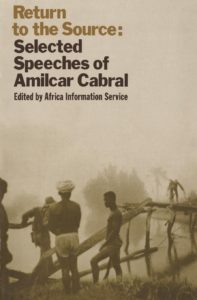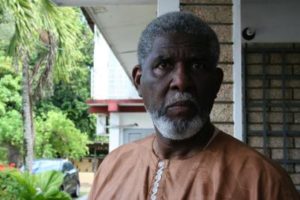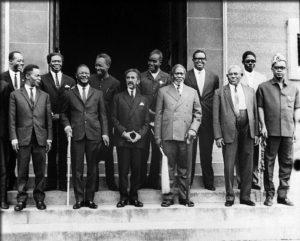|
Getting your Trinity Audio player ready...
|
Reading Time 3 mins
May 25, 2022
“Continued use of similar mobilization moments is necessary because the task is not yet accomplished. As revolutionary thinkers, we will not engage in stifling the creative thrust of the people as they modify and sharpen their mobilization tools.”
Some ask, Is African Liberation Day meaningful in this day and time? Has it outlived its usefulness? Well, for revolutionary Pan Africanists, African Liberation Day has always been a mobilization moment, a day, a weekend, a week, when Africans pause to reflect on their liberation journey, assert their identity, strengthen their resolve, to support their Freedom Fighters in the field and to deepen their thrust on the diplomatic front.
Just as meaningful, African Liberation Day has been a political point on the path to the ultimate goal of the United African State, or as it is commonly called in our organizational literature, a United States of Africa. Let’s go back to Accra 1958, Addis Ababa 1963, or Lumumba Park, District of Columbia 1972; we can see the concept of the day being used as a marker of progress and a motivator for more enhanced mobilization and organization.
In 1958 Accra was the site of the First All African Peoples Conference attended by delegates from 28 African countries and colonies. In 1963 Addis Ababa hosted thirty-two recently Independent African States and launched the Organization of African Unity. In 1972, twenty-five to thirty thousand Africans in the diaspora gathered in Lumumba Park, District of Columbia, after confronting the Portuguese Embassy, challenging the Rhodesian and South African Regimes, and vehemently denouncing the role of the United States in the Settler-Colonial Project.
The Liberation Day mobilization efforts bore fruits in victories over Portuguese Colonialism. Between 1973 and 1975, Armed Struggle had liberated all the former Portuguese Colonies, the likes of Guine-Bissau, Mozambique, and Angola, and ushered in Independent States. Soon to follow was an Independent Zimbabwe in 1980. A decade later, in 1990, Namibia. Four years later, in 1994, South Africa took its place among the Independent Nations of the World.
 As a mobilization effort, African Liberation Day played a small role in the victories attained by Armed Struggle and the goals achieved in establishing the African Independent States. We also saw progress on the diplomatic front. The 32-member OAU of 1963 was transformed into the 55-member AU of 2002. But for Revolutionary Pan Africanists, the use of a mobilization moment like African Liberation Day, which was referred to as Africa Day and Africa Freedom Day, has not run its course.
As a mobilization effort, African Liberation Day played a small role in the victories attained by Armed Struggle and the goals achieved in establishing the African Independent States. We also saw progress on the diplomatic front. The 32-member OAU of 1963 was transformed into the 55-member AU of 2002. But for Revolutionary Pan Africanists, the use of a mobilization moment like African Liberation Day, which was referred to as Africa Day and Africa Freedom Day, has not run its course.
Continued use of similar mobilization moments is necessary because the task is not yet accomplished. As revolutionary thinkers, we will not engage in stifling the creative thrust of the people as they modify and sharpen their mobilization tools. Thus, if they choose to have African Liberation Day evolve into African Unification Day or African Union Day, we will not be deterred as we focus on the utility of the evolving mobilization moments. As mentioned earlier, the goal is a United African State. We envision, we are committed to, and we work toward the free and voluntary coming together of all the African Independent States in a political and economic union founded on the most progressive political and economic principles that the minds of the African people are capable of producing.
We are heartened by the groundswell of Pan African sentiments coming from African Youth on the continent and in the diaspora. Tracking the works of Organizations like The Economic Freedom Fighters and the Pan African Federalist Movement signals to us that the freedom train is still on the tracks and picking up momentum.
Incidentally, this year 2022, marks the fiftieth year I have contributed some fuel to that freedom train. 1972 was the get-on-board point for so many of us. In memory of all those who have brought us this far, we owe it to the ancestors to intensify the struggle.
Africa Must Be Free
Africa Will Be Free
It’s Up To You And Me.
 Kamau Odinga is a Pan-Africanist Community Organizer based in Hahnville, LA.
Kamau Odinga is a Pan-Africanist Community Organizer based in Hahnville, LA.

